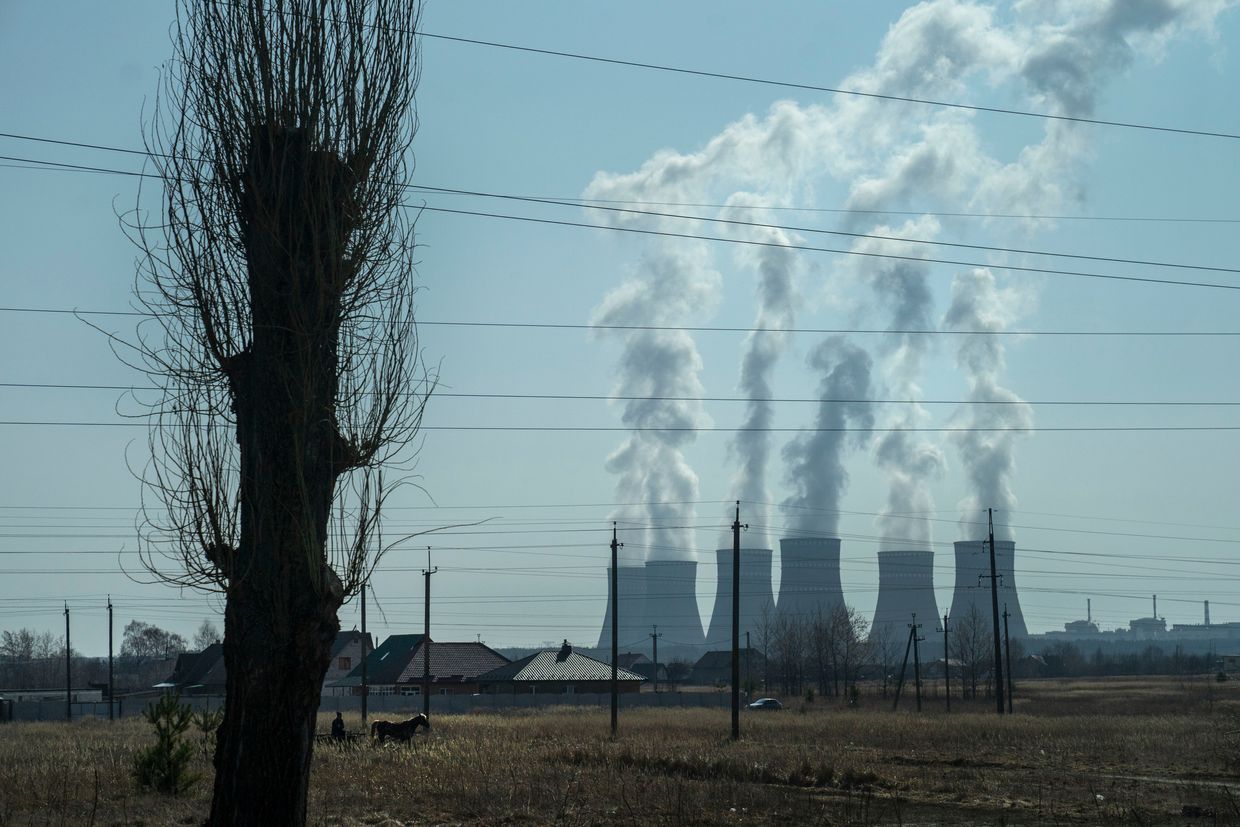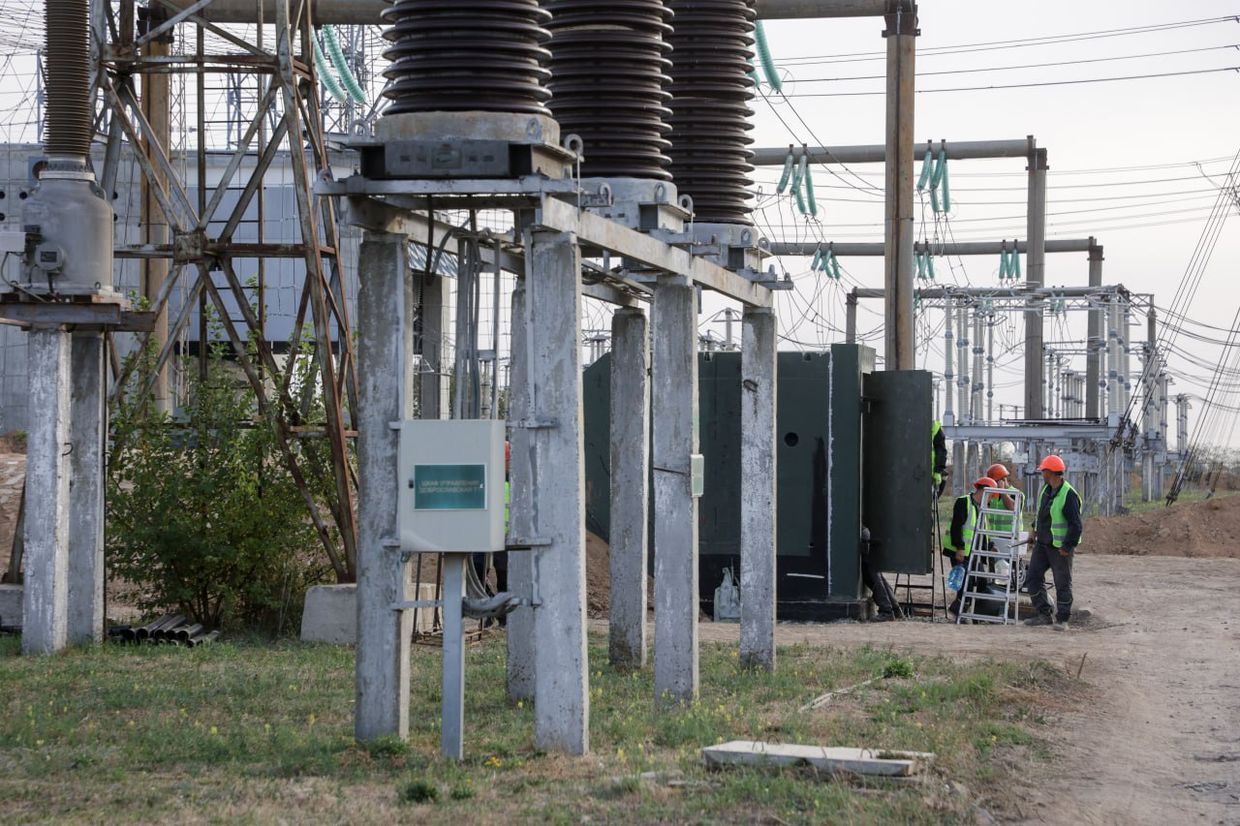Speaking at a press conference in Kyiv on May 10, President Volodymyr Zelensky rebuked the idea of a demilitarized zone in the war and emphasized the importance of first securing a ceasefire.
"We agreed that a full and unconditional ceasefire must begin on Monday, May 12, for at least 30 days. We jointly demand this from Russia, and we know we are supported in this by the United States," Zelensky said.
The announcement follows mounting fears that the two nuclear-armed countries were on the brink of engaging in another full-scale war.
Ukrainian media outlet ZN.UA reported on May 10 that their law enforcement sources confirmed an ongoing probe by the National Anti-Corruption Bureau into suspected embezzlement, money laundering and bribery.
Iran is preparing to send Russia Fath-360 short-range ballistic missile launchers, Reuters reported on May 9, citing Western security and regional officials familiar with the matter.
"Ukraine and all allies are ready for a complete unconditional ceasefire on land, in the air, and at sea for at least 30 days, starting as early as Monday," Ukraine's Foreign Minister Andrii Sybiha wrote.
U.S. President Donald Trump has acknowledged in private that Russia is difficult to negotiate with because they "want the whole thing," referring to Ukraine, the WSJ reported, citing sources familiar with the comments.
The visit marks Merz’s first trip to Ukraine, and the first time all four leaders have travelled there together.
A notice about the airspace closure was published on the U.S. Defense Department's NOTAM (Notice to Airmen) website on May 10, as cited by Ukrainian defense news outlet Militarnyi.
"As in the past, it is now for Russia to show its willingness to achieve peace," the EU's statement reads.
Kremlin spokesperson Dmitry Peskov rejected the idea of a 30-day ceasefire between Russia and Ukraine, claiming in an interview with ABC News on May 10 that it would be "an advantage" for Ukraine.
"Our involvement in the war was justifiable, and this belongs to our sovereign rights," North Korean dictator Kim Jong Un said. "I regard this as part of the sacred mission we must execute for our brothers and comrades-in-arms."
Energoatom orders additional protection for Rivne Nuclear Power Plant only at end of September, media reports

Ukraine's state nuclear energy agency Energoatom signed on Sept. 25 a contract worth Hr 509 million ($12.3 million) for the design and construction of a protective structure at the Rivne Nuclear Power Plant, Ukrainian investigative media outlet Nashi Groshi reported on Sept. 30.
The outlet noted that the agreement was concluded only after President Volodymyr Zelensky told the U.N. Security Council on Sept. 24 that Russia was preparing to target three Ukrainian nuclear power plants and that the infrastructure around the plants was not properly protected.
The protective structures around the plants include U-shaped structures that shield large transformers from drones and shrapnel damage in the event of an indirect missile hit, Nashi Groshi said.
Energoatom signed the contract via Prozorro, Ukraine's electronic public procurement system, designed to increase transparency and competition in the bidding process, Nashi Groshi reported.
The outlet also said that the contract itself was not published on Prozorro, so details about how many and how large the structures that are to be built under this new contract will be are unknown.
For comparison, Ukrainian state grid operator Ukrenergo recently signed contracts worth Hr 98 million ($2.3 million) and Hr 120 million ($2.9 million) for structures that protect one transformer, Nashi Groshi reported.
Volodymyr Kudrytskyi, the former head of Ukrenergo, said in an interview with Suspilne after his recent dismissal that more than 60 of the company's facilities have these types of protective structures.
According to Kudrytskyi, these structures helped Ukrenergo recover from a mass Russian attack on Aug. 26.
Russia launched nine coordinated attacks against Ukraine's electricity infrastructure between March and the end of August, striking facilities in 20 oblasts.
According to an International Energy Agency (IEA) report, Ukraine's electricity shortage could reach 6 gigawatts this winter due to the attacks, which is about one-third of the expected peak demand.
This summer, the power shortage was 2.5 GW when Kyiv was already experiencing long blackouts.
There are three operating nuclear power plants on Ukrainian-held territory: the Rivne and Khmelnytskyi plants in the country's west and the Pivdennoukrainsk plant in the south. Russia's regular attacks cut off power to the units, putting their safety in jeopardy.
According to the Energy Ministry, nuclear generation currently accounts for up to 60% of the country's electricity consumption.
The Zaporizhzhia Nuclear Power Plant, Europe's largest nuclear power station, has been under Russian occupation since March 2022.

Most Popular

After 3 years of full-scale war in Ukraine, Europe announces plan to ban all Russian gas imports

Ukraine, Europe's ceasefire proposal includes US security guarantees, no recognition of Crimea, Reuters reports

Journalist Roshchyna's body missing organs after Russian captivity, investigation says

After Russia's deadly attack on Kyiv, Vance reposts denunciation of Zelensky

Ukrainian sea drone downs Russian fighter jet in 'world-first' strike, intelligence says
Editors' Picks

How medics of Ukraine’s 3rd Assault Brigade deal with horrors of drone warfare

As Russia trains abducted children for war, Ukraine fights uphill battle to bring them home

'I just hate the Russians' — Kyiv district recovers from drone strike as ceasefire remains elusive



